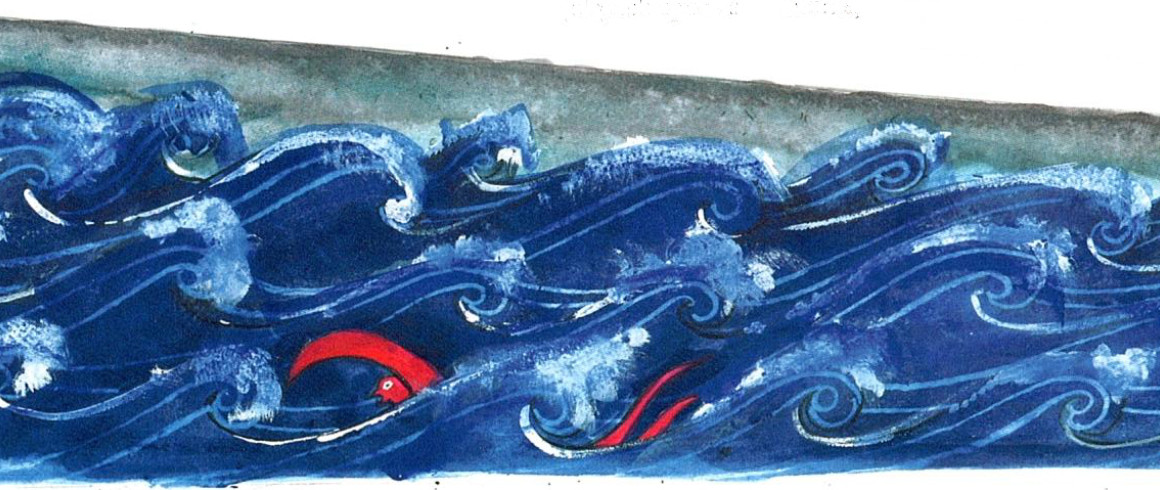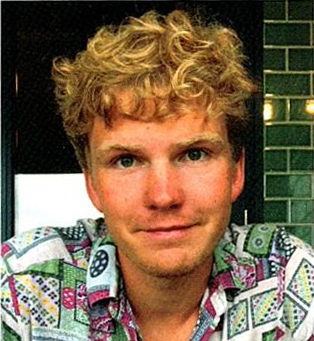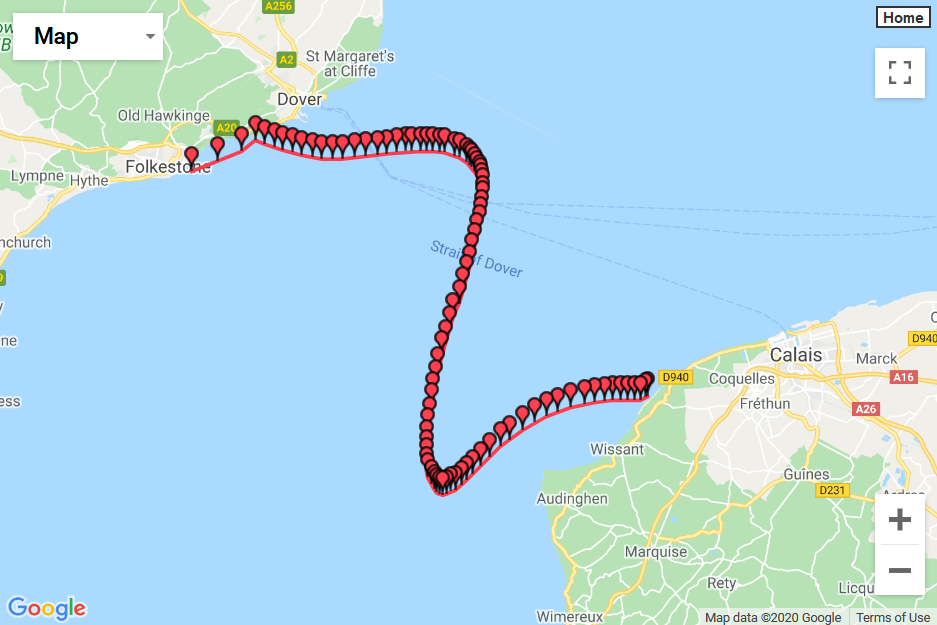Channelling Conservation
In this article from the 2021 Martlet, Dan Shailer (2018) writes about his fundraising swim across the English Channel
Every year, a handful of pilot boats escort Channel swimmers off a beach next to Dover for the long journey towards France. If the swimmer is well prepared and (more importantly) lucky, the pilot boat will reach French inshore waters and push on towards the coast until, in the last few hundred metres, the seafloor becomes too shallow for the boat to travel any further. At this point, most boats stop to put out a smaller dinghy, which a pilot will row into shore next to the exhausted swimmer. Exhausted, but euphoric, because by this point they have reached rarefied water; there will often be people wading off the beach in France, but only one in five of the swimmers who walk off a beach in England swim until they can walk up another beach in France.
On 4th August 2020, after fourteen hours of swimming, I remember dotting the Is and crossing the Ts on a mental list of excuses to give up. The list itself came easily – conveniently, I had been drafting it since about 1 am that morning. I had begun swimming in the darkness just before midnight and it was now about 2 pm, though (forgivably, I think) I had long since lost track. The case for chucking it in was, by this point, beginning to gain serious momentum and my list of reasons felt pretty foolproof when, breathing to the right, I saw one of the two pilots, Harry, untying Masterpiece’s dinghy. I could have cried. If you ask my mum, I did. In one moment, the letter of resignation I had been writing myself was forgotten and I felt a surging rush of relief – because it was over. An hour and a bit later it actually was over and I walked up a beach just west of Calais.
I was very lucky to have been able to take on this swim at all, let alone in such a tumultuous and unexpected year. When I began planning the adventure back in April 2019, I could not have anticipated that pools would be closed for more than half of my training. Looking back, though, some elements of lockdown were a blessing in disguise. Locked down on the Dorset coast, I was able to start swimming in the sea from March and gradually build up my tolerance to cold water with frigid showers and incrementally longer swims. I was also lucky to be in the sea at a time when, as human activity took a step back, wildlife experienced a brief resurgence. I have visited the same beach looking into Poole Harbour since I was child, but never before seen seals bobbing off the shore, let alone swum with them. Over my training I swam with other seals over weaving forests of kelp, carbuncled spider crabs, a catalogue of jellyfish species and even, once, a solitary seahorse. Seahorses in particular made a comeback over the Spring months of 2020, cropping up all along the coast in areas they hadn’t been recorded for years.
By this point I had already begun fundraising for the Marine Conservation Society (MCS), but experiences like these showed me just how high the stakes for protecting our ‘blue spaces’ are – and how much we stand to lose (apart from jellyfish). MCS is the UK’s largest environmental society focused on conservation of coastal environments, and I was proud raise just over £13,000 to support their work. I’m hugely grateful to everyone who donated, to the schools that had me over to speak before lockdown in March and, in particular, to Sally March, in the Development Office, for getting the word out at Pembroke.
I am also grateful for the support I had on the day, both over social media and on the boat – without which my swim would have been a very different and altogether shorter story. My lasting memories of the day itself are of emotional extremes: from intense fear when I jumped into inky black water in the small hours, to the feeling of satisfaction and relief at the other end; from frustration at broken goggles and jellyfish stings, to the joy of eating a burger in a bath when I arrived home. I remember hours of swimming in darkness before the sun rose just as well as I remember hugging my family back on the boat when it was all over.
Since the swim, I am very flattered to have been picked by MCS as their Fundraiser of the Year and awarded the Channel Swimming Association’s trophy for the most difficult conditions of the season. I’m equally thrilled that a friend from Dover beach combed through the records to find I am the 2105th person to swim the Channel, the tenth ‘Daniel’ and, most importantly, three minutes quicker than the average ‘Daniel’!
This year, I’m excited to be captaining the Cambridge Open Water team as we take on Oxford in our Varsity relay race across the Channel. Despite more disruption and another virtual ‘term’, I’m relishing the opportunity to share wild and winter swimming with the University community in the Summer and support some new charities alongside the dark blue team. I also have a couple of solo swims in the pipeline, including a swim across the Bristol Channel – a little anticlimactic, perhaps, but a challenge that will fit more comfortably alongside studying for Finals, I hope.
Dan is a third-year student of English and captain of the University Open Water Swimming Team. Read more about how Dan trained and prepared to swim the English Channel on his blog.
Illustration: An intrepid Martlet swims the English Channel, drawn by Martin Rowson
Image: Dan Shailer
Image: Dan's route across the English Channel


